Today, we are delighted to present an interview with the talented and successful tattoo artist, Julia Penza. Originally from Russia, Julia has been living and working in the USA for the past 7.5 years, where she has not only mastered a new profession but also achieved significant success in it. For the last 2.5 years, Julia has been working at the prestigious DC Society Ink tattoo shop, owned by world-renowned actor Dave Bautista and his partner, tattoo artist John Kural.
Julia has won numerous awards at international tattoo conventions, including first place in the microrealism category from DGN Tattoo Magazine and two first places in The Ultimate Ink Challenge. In this interview, Julia shares her vision of tattooing as an art form, talks about her journey to becoming a professional, and discusses her plans for the future. Learn more about her unique style, inspiration, and what tattooing means to her.
Let's start with an introduction. Where are you from? Where do you currently work and take appointments?
- My name is Julia Penza. I am from Russia. I moved to the United States 7.5 years ago. 3.5 years ago, I acquired a new profession and have been quite successful in developing in this direction. For 2.5 years, since opening day, I've been working at the DC Society Ink tattoo shop, owned by world-renowned actor Dave Bautista and his partner, tattoo artist Jonh Kural, who has 27 years of experience.
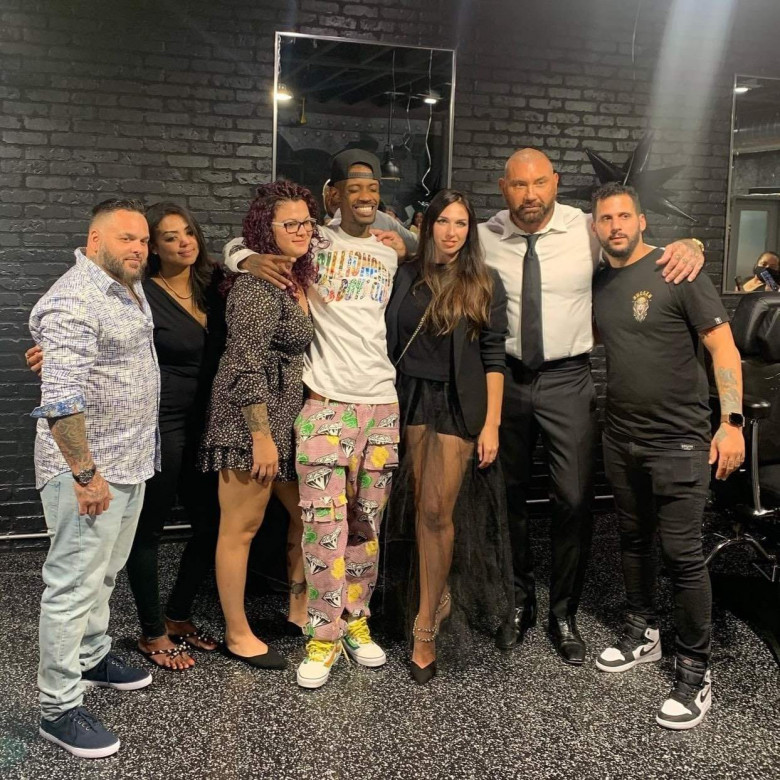
For you, is tattooing an art, a job, or something else?
- Both, of course. But it is primarily motivation for development. Each project motivates me to do better and better. I want to be perfect at my job.
As far as we know, you don't have tattoos. How did this happen, and is there a desire to get one now, or perhaps in the future?
- I did not have a desire to get a tattoo; rather, I was even scared away from this profession when friends offered to study to become a tattoo artist. I don't get a tattoo because I don't want to. I don't imagine myself with a tattoo; I like my body as it is. I like to tattoo, but not demonstrate. Getting a tattoo just to show that I'm connected to this field is illogical to me.
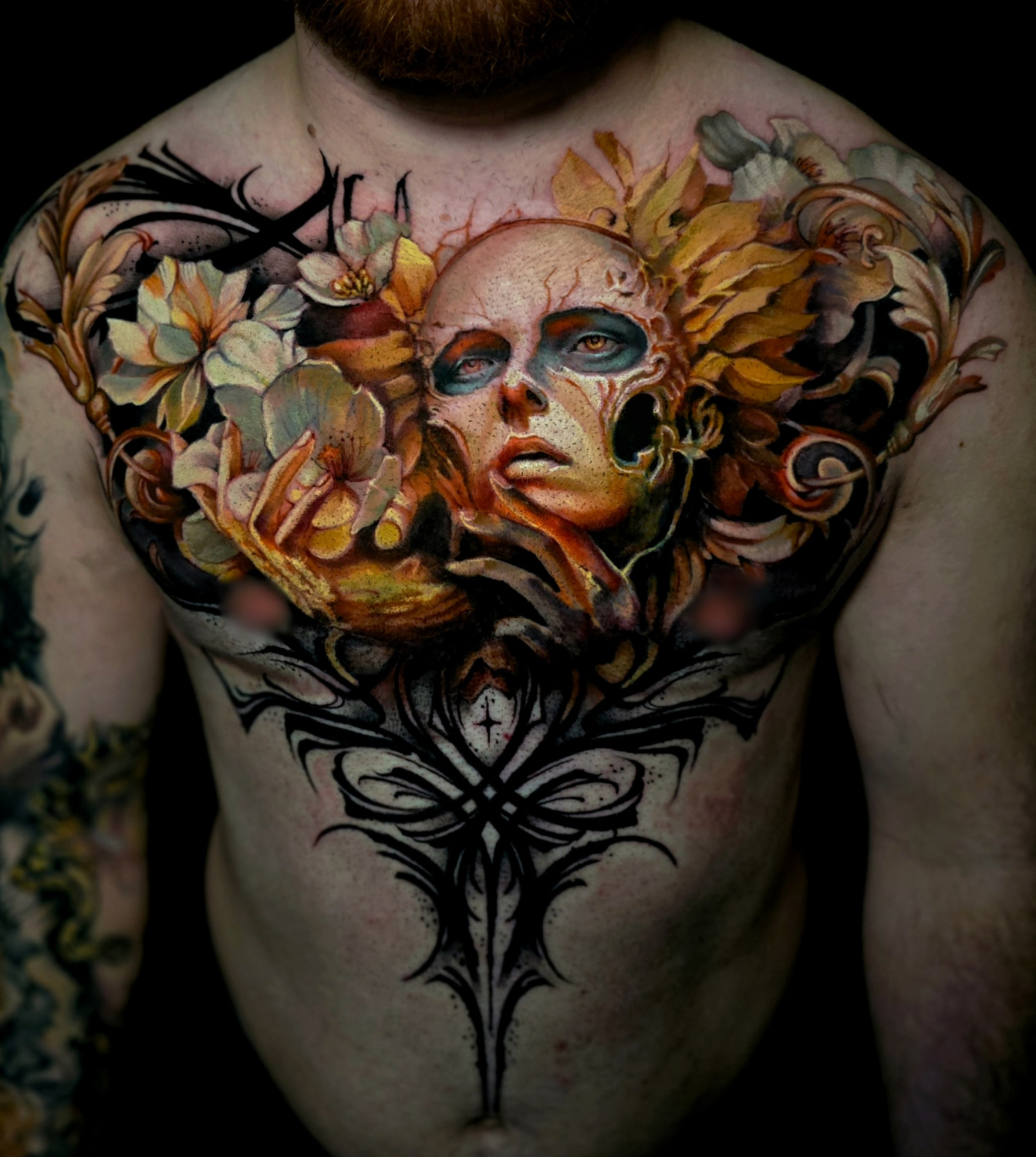
If a client likes the tattoos of his tattoo artist more than his portfolio, then it is more logical to go to the tattoo artist of his tattoo artist. Only one's own work can speak about professionalism. I'm still of that opinion now. The presence or absence of tattoos is not a concern for my clients. It is more important for them to receive first-class service and quality work that will remain with them for life.
And when did you start considering it as a career?
- 3.5 years ago. I had a variety of work experiences. Since childhood, I have been attracted to two spheres: logical and creative. As a child, I drew a lot and dreamed of becoming a designer. But my parents' lack of money for me to study a creative profession led me into the technical field. That's how I got my education in aviation. I have no regrets about it; on the contrary, I am very proud because it has allowed me to develop my logical abilities.
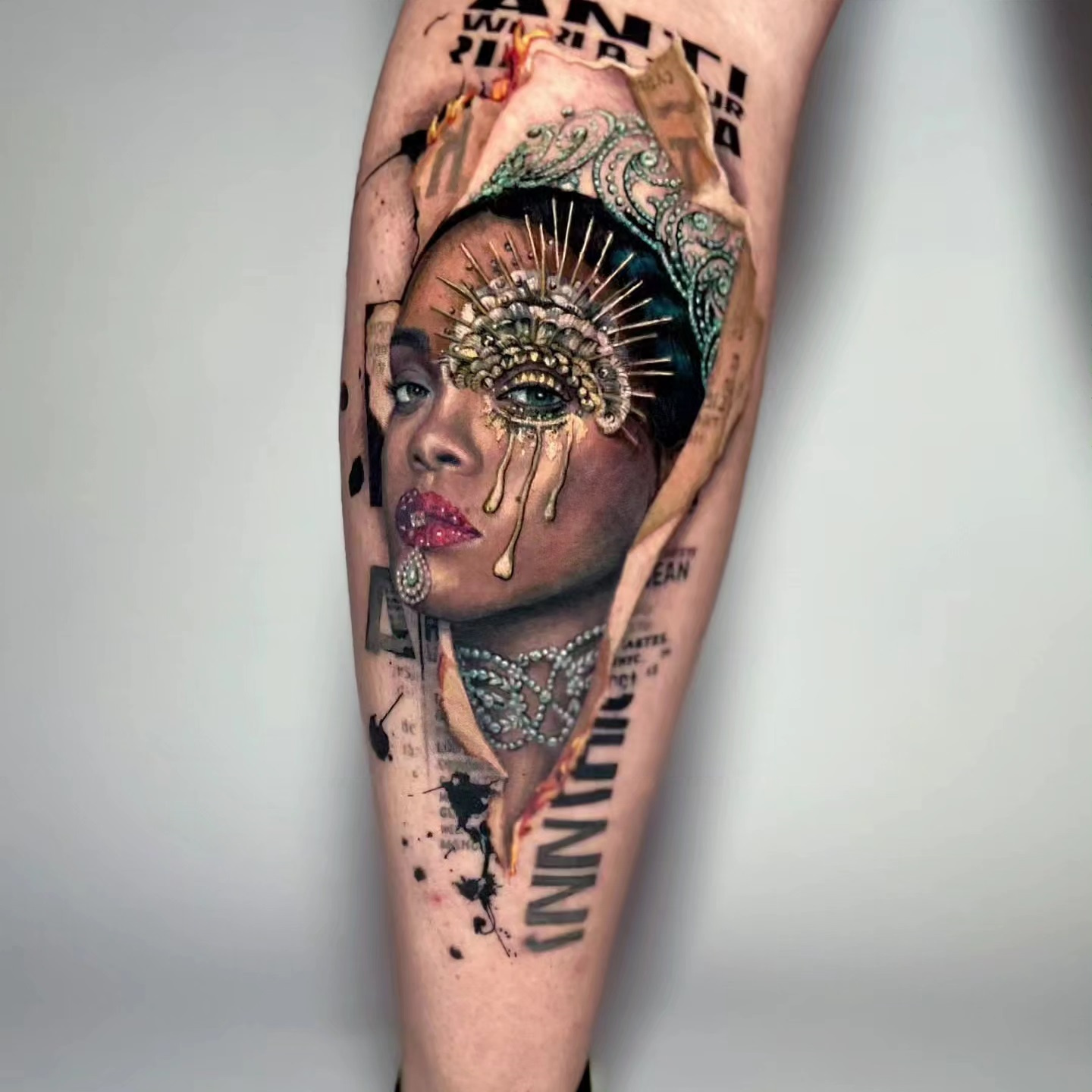
Nevertheless, I always had a creative side in me, and upon arrival in the United States, it became my main breadwinner. I first worked as an art teacher at a children's center and then decided to open my own. Unfortunately, the timing was unfortunate. I got into the coronavirus period and had to try hard to pay the rent. At that moment, I came across an announcement about finding an apprentice and decided to just try without any illusions for a successful career. Fortunately, I succeeded.
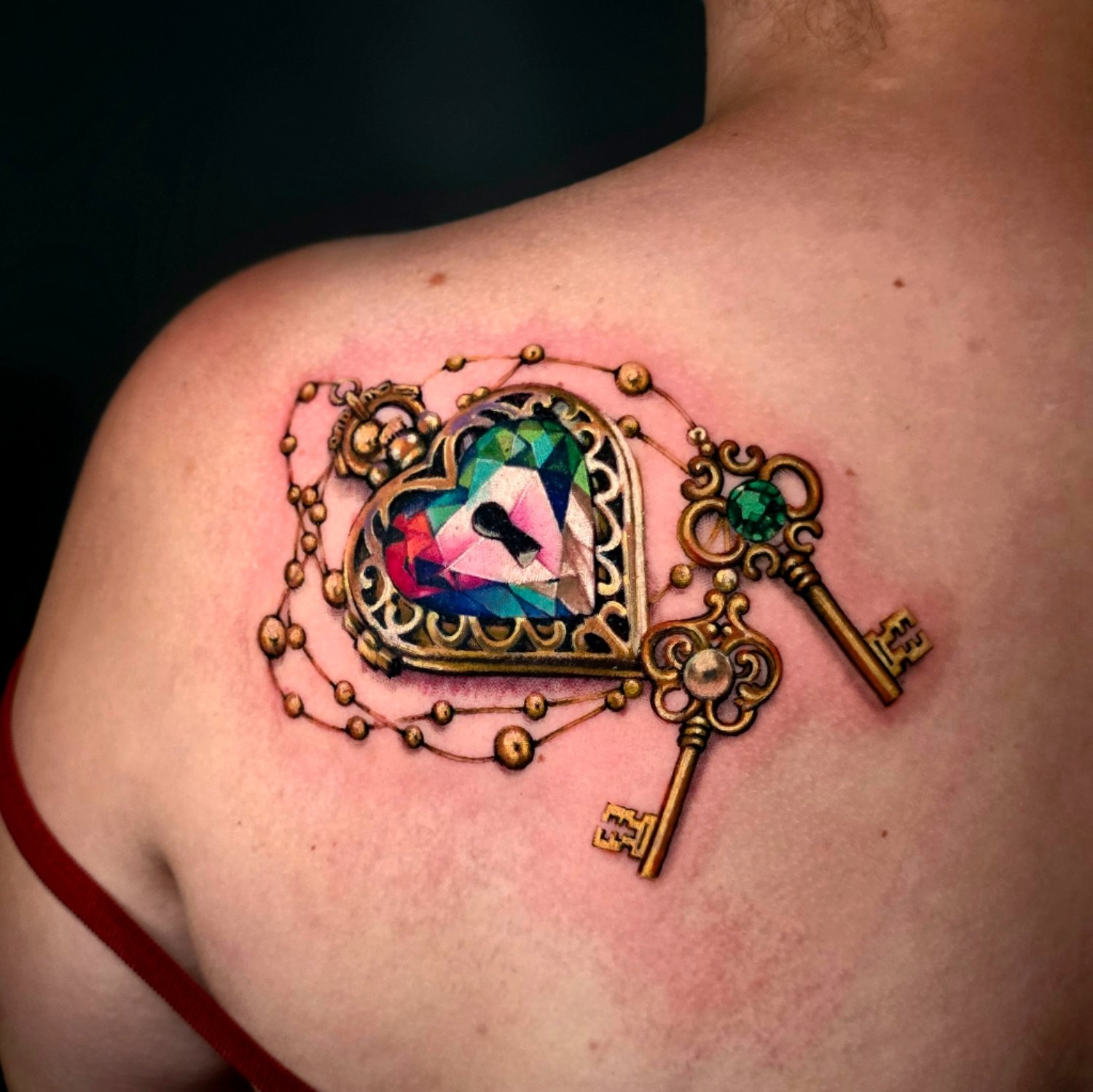
Tell us how your amazing style developed. How did you start?
- I would define my style as large microrealism with gold-effect details. I've always liked difficult tasks. Microrealism is very difficult work, requiring a lot of patience and attention to small details. When I was preparing a project to participate in the first tattoo convention, I wanted to show the scale of my skills at that time and do something that my soul was passionate about. I did a project with an Asian girl with a lot of small jewelry. This work won two first places. Thanks to it, I was noticed. It's still on my favorite list. I made it with love and got a great result, so I decided to continue working in this style.
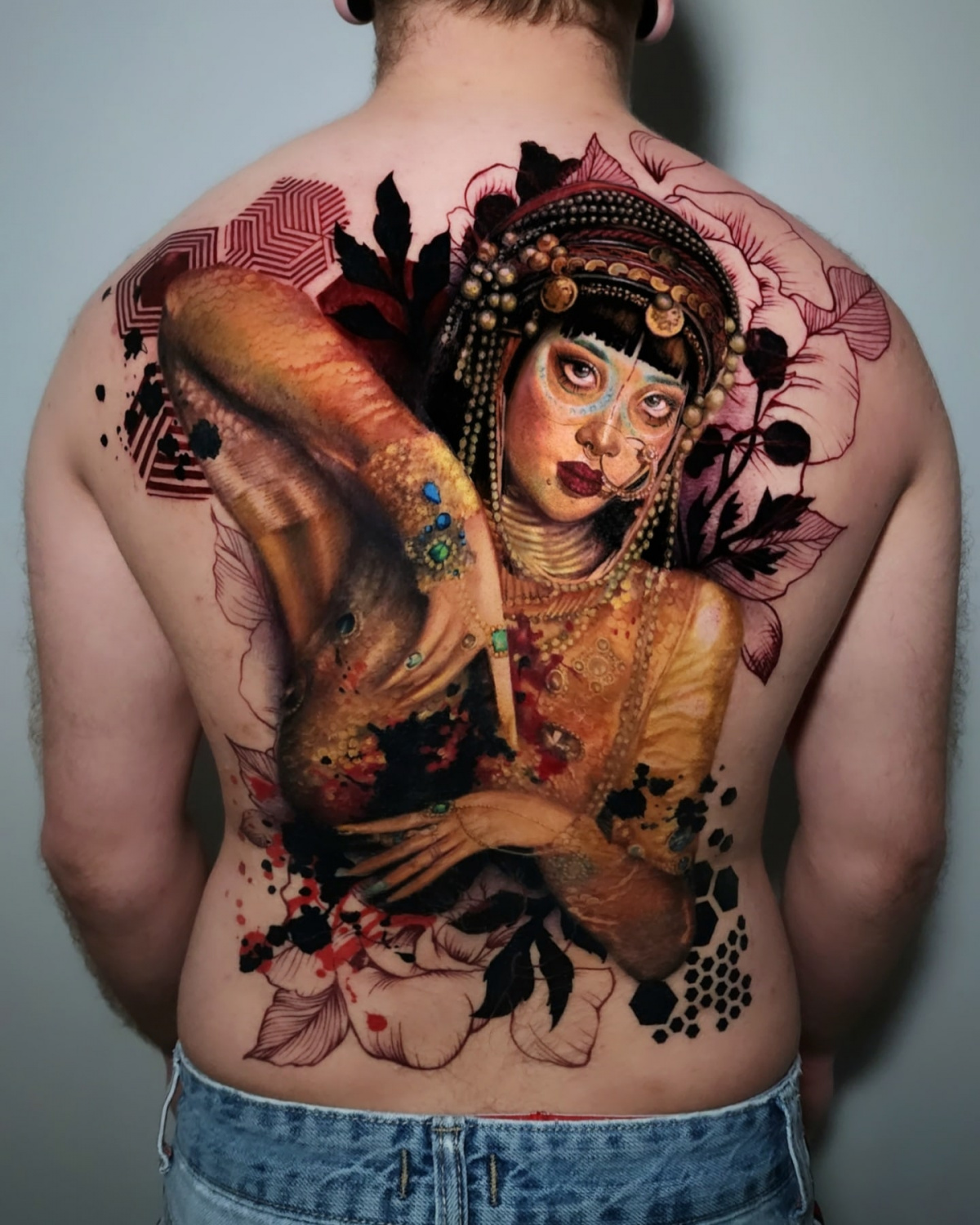
However, I don't want to give up other styles. I like being a versatile professional. I want to develop my skills in many styles. I like the idea that any of my fans can come to me and get even a small tattoo, but he will be proud that the work is done by me. Some of my clients ask for my autograph on their bodies. It's very valuable to me.
Did you have any teachers, or are you self-taught?
- During my childhood, my grandmother, a professional artist, had a significant influence on my artistic development. Although she never formally instructed me, the opportunity to closely observe and analyze her paintings at her home provided me with valuable insights and inspiration. This exposure to her artwork motivated me to return home and diligently apply my observations and analysis to my own artistic endeavors. Over time, I noticed flaws in her paintings and began to draw better than her.
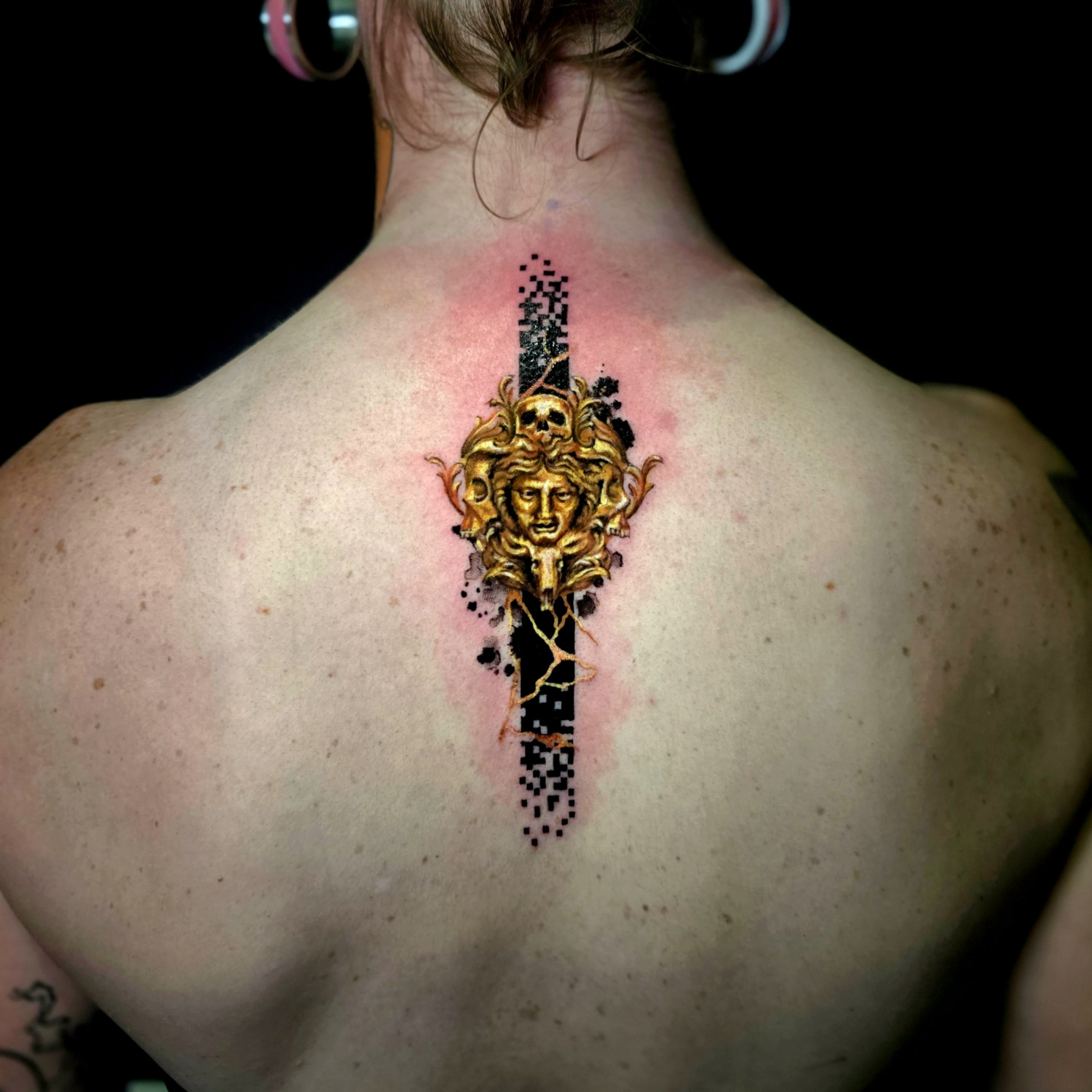
In general, I came to professional drawing on my own. When I saw the advertisement for the apprentice, I was already a professional in the art field. I only needed to learn how to use new tools and understand the features. The owner of that salon, Irina Korniliva, helped me with this. She immediately saw great potential in me and said that I could be a cool tattoo artist. I'm very grateful to her for the opportunity. My artificial skin training took about two weeks. Then I also analyzed my hand movements to understand what I was doing right and what I wasn't doing. A full understanding of how to do it correctly came a year later. Still, I'm trying to improve my technique to get even better.
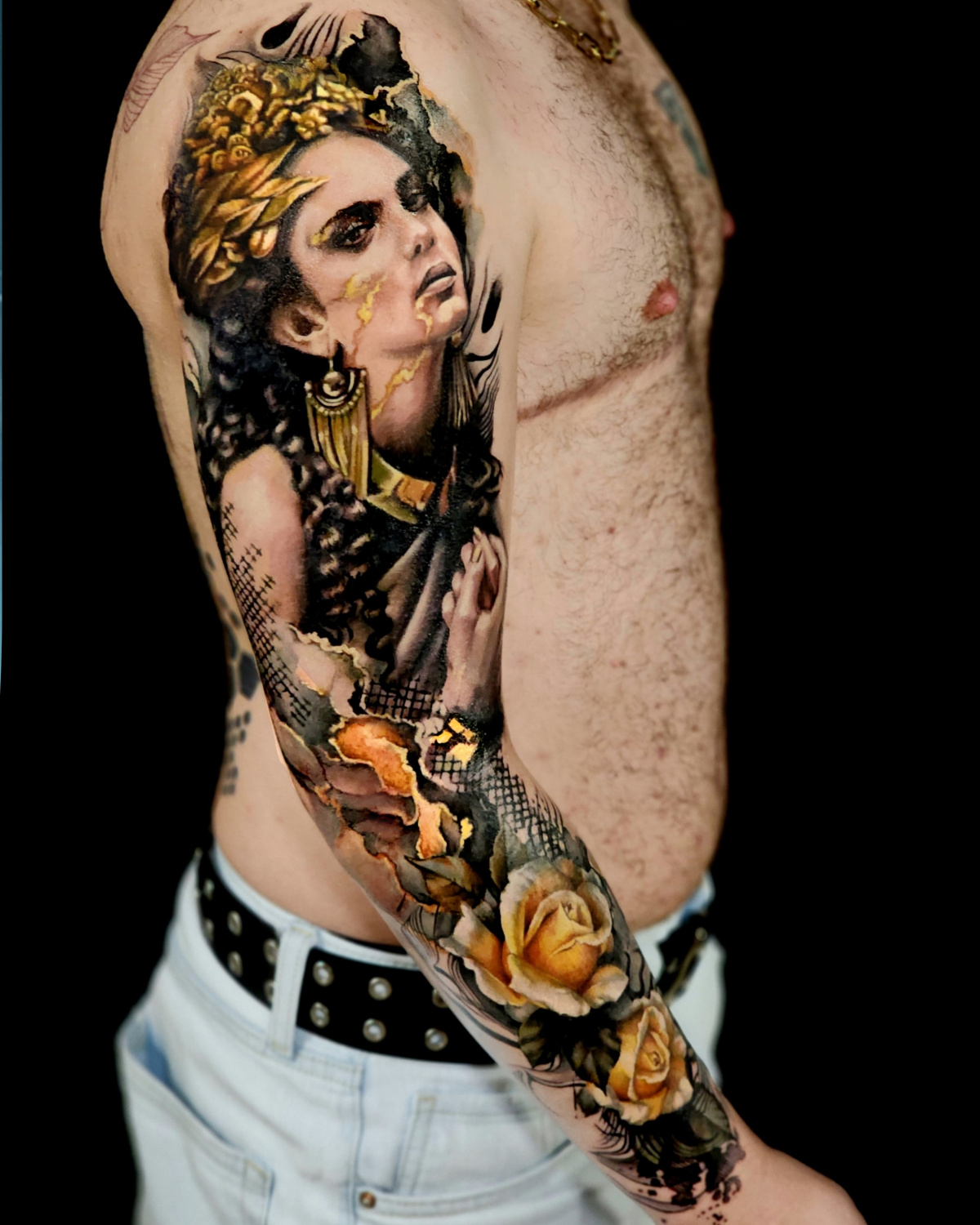
What is the most appealing aspect of your work?
- The opportunity to develop globally. I didn't underestimate myself as an artist before. I know now that I can do a lot, and I haven't exhausted my potential yet.
When did you realize that your career was taking off?
- 1.5 years ago, when I started competing and winning.

We often see you among the participants and winners of the world's largest tattoo contests. How many awards do you have in total? And which one is the most significant for you?
- In 1.5 years of my participation in competitions, I have 20 awards of different denominations, of which 12 are first places. The most significant for me are: First place in the microrealism category from DGN Tattoo Magazine and two first places in the competition The Ultimate Ink Challenge, Best Cover-up and Best of Contest. Both competitions were attended by tattoo artists from all over the world. The jury included highly respected tattoo artists in the industry. In The Ultimate Ink Challenge, I also won a cash prize of $3,500.
You are on the pro teams of several major tattoo brands. Tell us what this membership gives you and whether you can influence the development of the tattoo industry.
- After my win in The Ultimate Ink Challenge, I was invited to the professional team of the organizer of the contest, Painless Tattoo Company. The company is engaged in the production of pain cream and tattoo care products. By the way, these are wonderful products. I also serve on the professional CNC tattoo team and use their needles for certain types of tattoos, as well as on the professional Sedation Ink team, which provides anesthesia during tattooing.
Participation in professional teams helps both sides promote each other. To achieve the highest quality of work, professional tattoo artists work with brands they can trust. Professionals are an example for others, which stimulates the manufacturer's sales, and the tattoo artist receives their products as gratitude for free. It is also important for a manufacturer to know the reviews to improve their products. I, for my part, am working on ideas for a new kind of needle that should make it easier for newcomers to work with shading in black and gray work. My idea is under consideration at the patent center.
What is the most important thing in tattooing for you?
- Quality, beautiful design, and matching design.
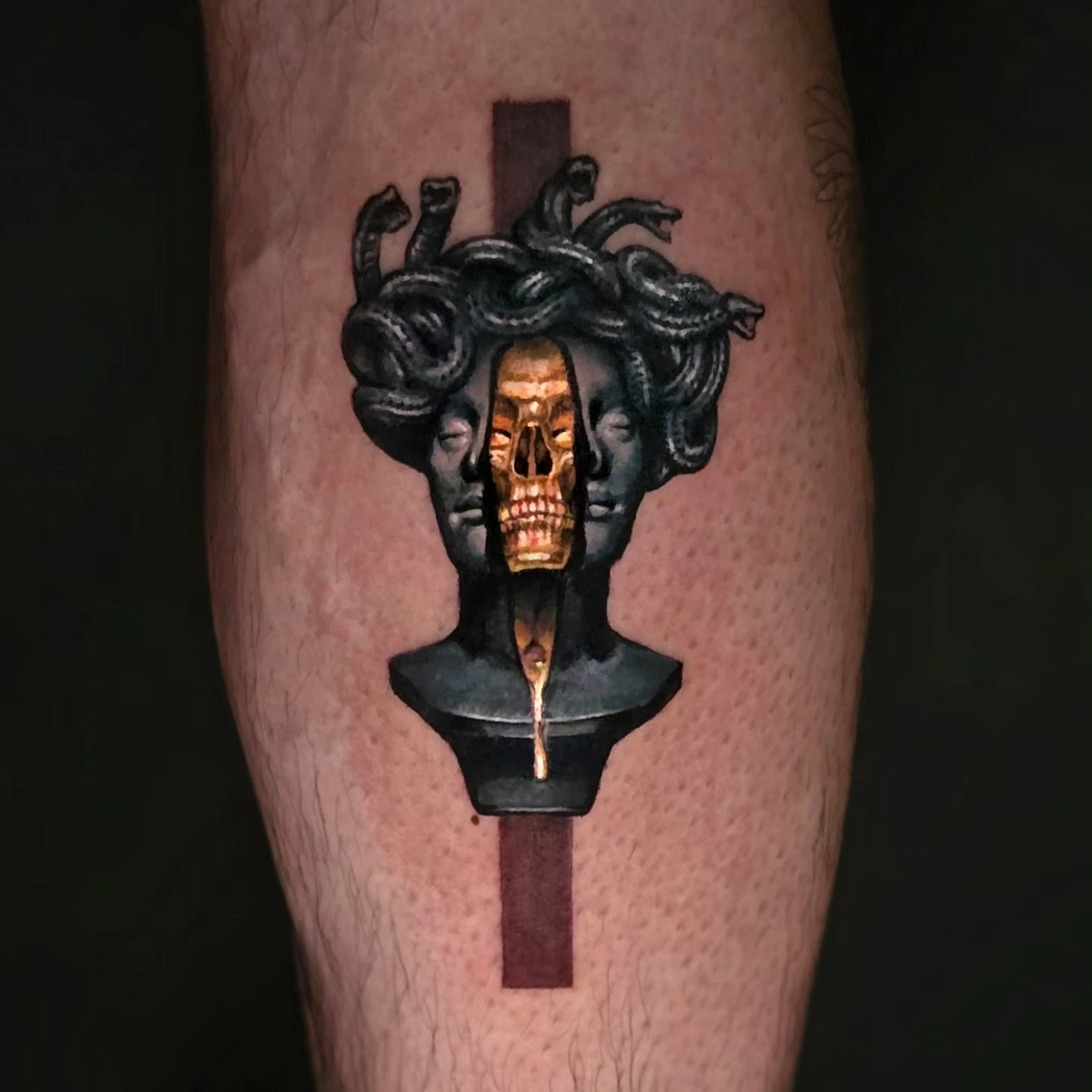
Do you travel a lot for work? Where and with whom have you had the chance to work? Can you share your most significant experience?
- Not much yet. A busy schedule prevents this from happening as often as one would like. But I have several convention tattoos in different states in the near future. I'm looking forward to creating my projects. I don't want to reveal details, but I'm planning to work together with one of the winners of the tattoo convention and one of the jury members of the tattoo convention.
What else are you passionate about besides tattooing?
- I'm interested in many things. I like to cook unusual dishes, I like to dance. I used to make a lot of sewn and decor items with my own hands. I love roller coasters and sports cars. There's not enough time for all this now. Free from tattooing, my time is spent communicating with clients and creating designs.
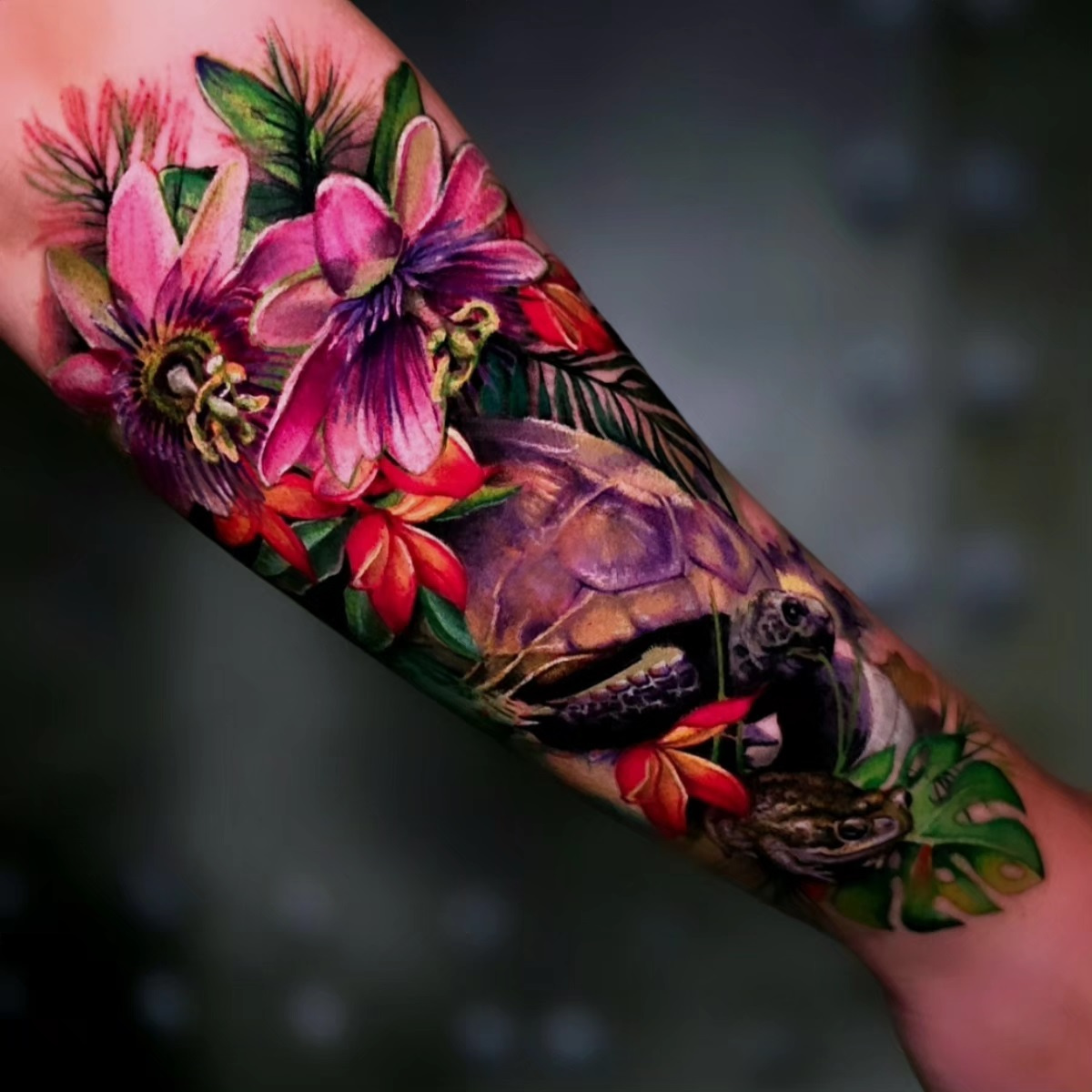
What is the main goal of your journey? Share your plans for the future.
- I've achieved a lot in a short time, but I know for sure that this is not the limit for me. So I want to push the boundaries and reach new heights. I want to get a patent for my invention and launch new tattoo needles into production. Unfortunately, this is a lengthy process and takes years. Having recently been a juror, I have identified a number of shortcomings in refereeing, so I have some recommendations for the organizers of the convention, which I believe will be adopted for more objective judging.
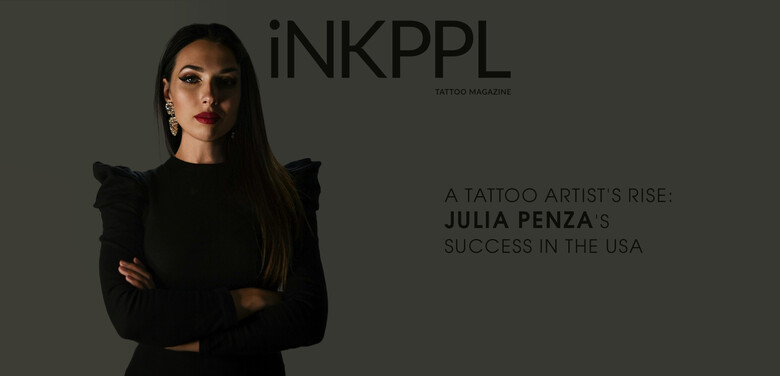







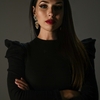
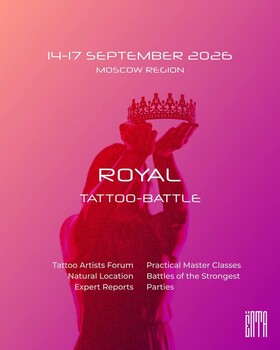
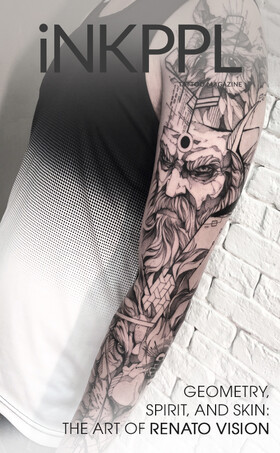
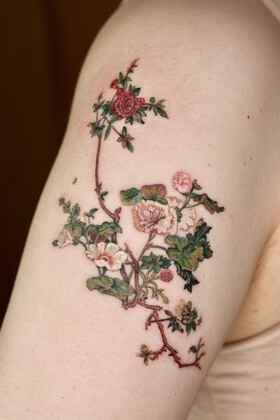
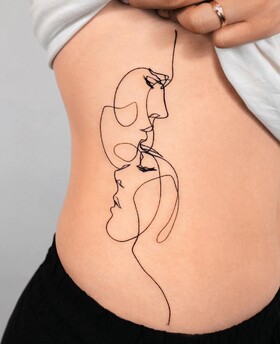
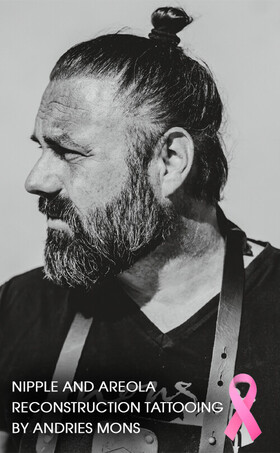
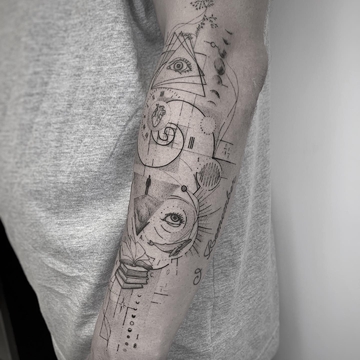
Comments (0)